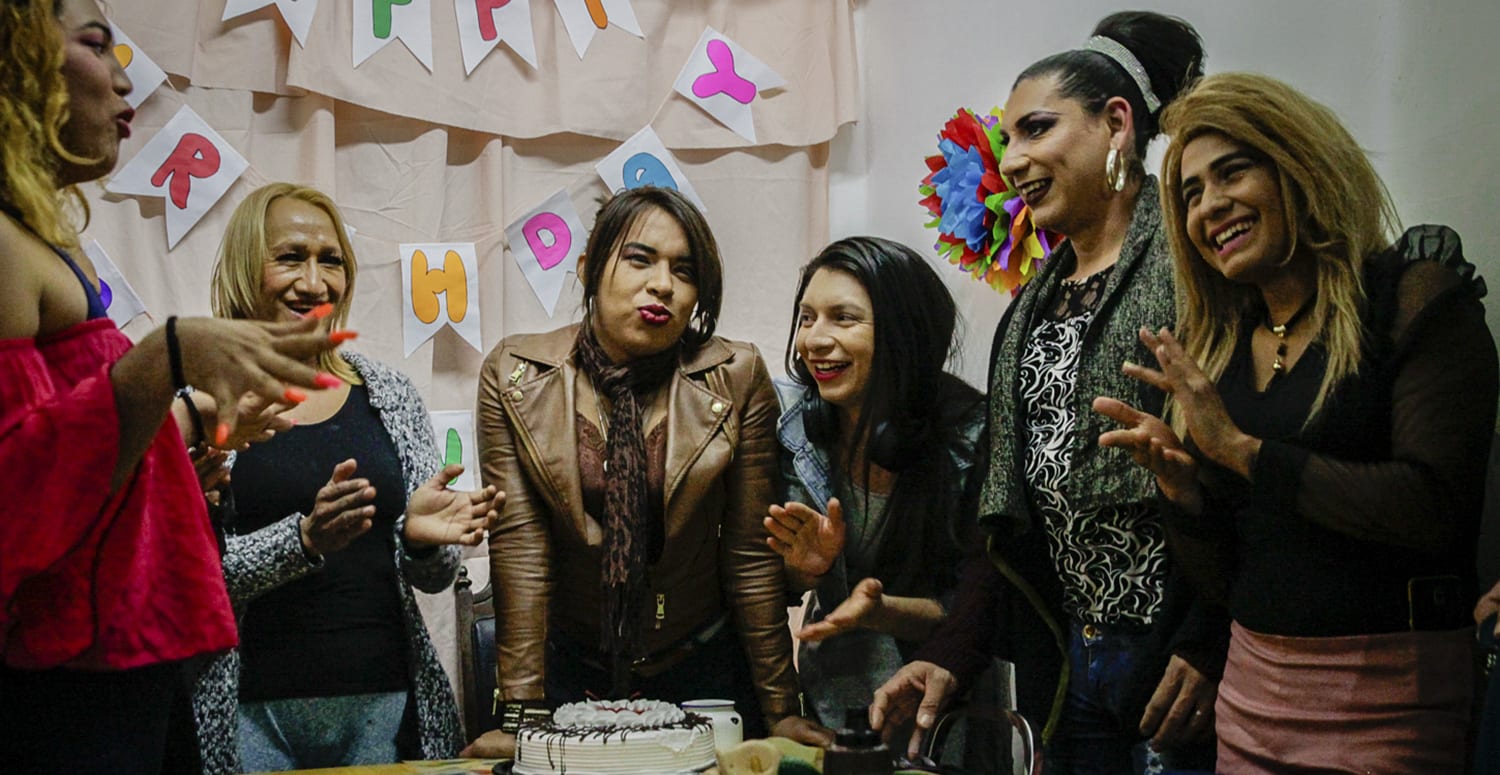 Photo by Claudia Hernández for Borderless Magazine
Photo by Claudia Hernández for Borderless MagazineMexico’s Casa de Colores has provided a home to a group of Salvadoran transgender women while they wait for asylum in the United States.
On a warm February afternoon, Susana Coreas stands outside the door of Casa de Colores in Ciudad Juárez, Mexico holding a phone in one hand and a 50 peso bill in the other.
As she hands the money to two women leaving the building, Coreas pauses her phone call and greets the visitor at her door.
“Adelante, esta es su casa,” she says. Go ahead, this is your home.
News that puts power under the spotlight and communities at the center.
Sign up for our free newsletter and get updates twice a week.
The 40-year-old knows just how precious a home like Casa de Colores can be for her community. A transgender woman, Coreas fled violence in her home country of El Salvador with the hope of receiving asylum in the United States. She wants to be reunited with her 16-year-old son who lives in Minnesota.
“I have been dressing since I was thirteen, no one from my family knows, no one from my hometown knows, no one from my previous job ever knew,” Coreas said in Spanish. “Coming here was the only opportunity to truly express myself and to see my son. That is my goal in life.”
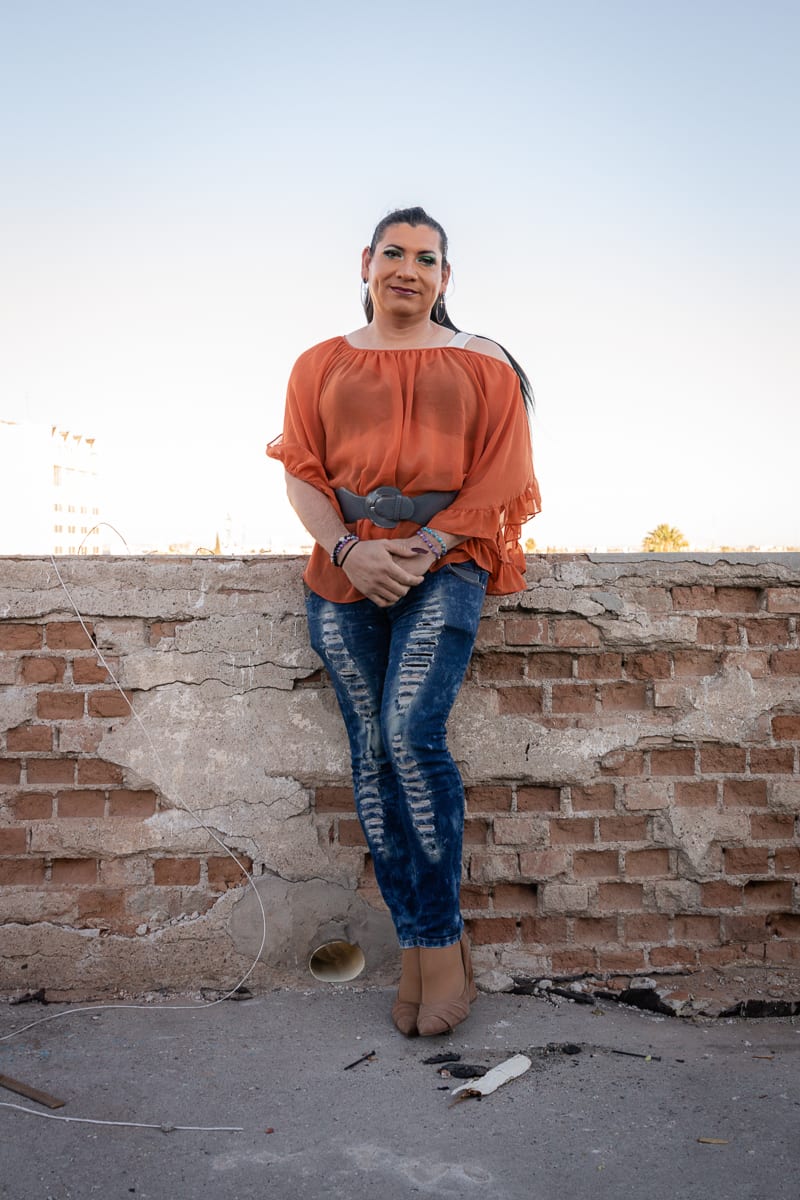
Here is a refuge for Coreas and other transgender and LGBTQ women. For many, it represents a place of limbo between the trauma of their old lives and the hope of refuge in the United States.
A former low-end hotel, Casa de Colores has long corridors with endless doors ajar. Behind every one you can glimpse makeup on dressers, rainbow pride flags hanging on the walls and collections of wigs of all styles.
Inside the building, someone is playing Lady Gaga’s “Born This Way” on their phone and three chubby dogs — Trixie, Mac and Alba — are wagging their tails contentedly. Although the walls are worn, the building is immaculate, with a clean smell of Fabuloso cleaner wafting through the rooms. When you meet the eyes of the tenants, they always answer with a friendly smile.
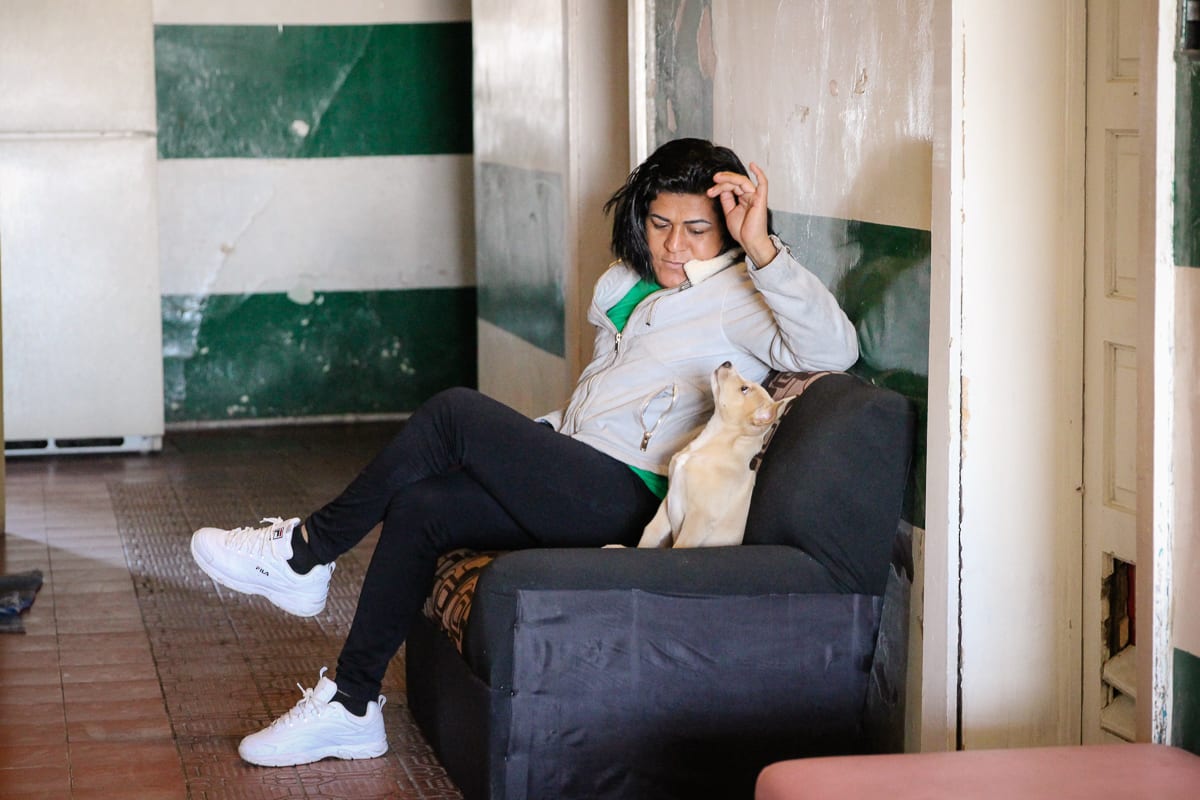
More than a shelter, Casa de Colores has provided both physical and emotional stability to a group of Salvadoran transgender women while they wait on the border in Mexico for asylum in the United States. El Salvador has one of the highest homicide rates in the world and transgender women there have a life expectancy of just 35 years.
For transgender women fleeing violence in El Salvador, the road to asylum in the United States is anything but easy. In order to claim asylum, the women must come to the United States and make a formal case. Before January 2019, most asylum seekers were allowed to stay in the United States while their cases made their way through the U.S. immigration court system. But former President Donald Trump’s Migrant Protection Protocols program required asylum seekers coming from the southern border to remain in Mexico, a policy that impacted as many as 70,000 people. With immigration court backlogs, these asylum seekers could wait anywhere from two months to three years for a decision on their asylum case, which, if won, would allow them to live in the United States.
Read More of Our Coverage
In February, President Joe Biden announced a roll back of the MPP program, allowing some asylum seekers impacted by the “Remain in Mexico” policy to enter the United States. For those who were not part of MPP, however, there is no quick or clear path to safety in the United States.
Stuck in limbo, the 30 women of Casa de Colores have built a community in Ciudad Juárez.
Vulnerable and Alone
Before Casa de Colores, there were other shelters. Places that the women say took advantage of their vulnerability.
While Mexican law recognizes same-sex marriage and provides limited protections to LGBTQ-identifying individuals, discrimination and violence are common. Mexico is the second deadliest country in the world for transgender people after Brazil, according to a 2019 study by LGBTQ rights group Letra S.
Coreas arrived in Ciudad Juárez in early 2020 with a group of 20 transgender women from El Salvador. The group decided to stay at a well-known shelter that catered to LGBTQ migrants. While the shelter charged them for food and rent, Coreas said the people who ran the shelter promised to help them get lawyers and apply for asylum in the United States. They told Coreas not to worry.
But after a few months, Coreas and the other women discovered that help wasn’t coming.
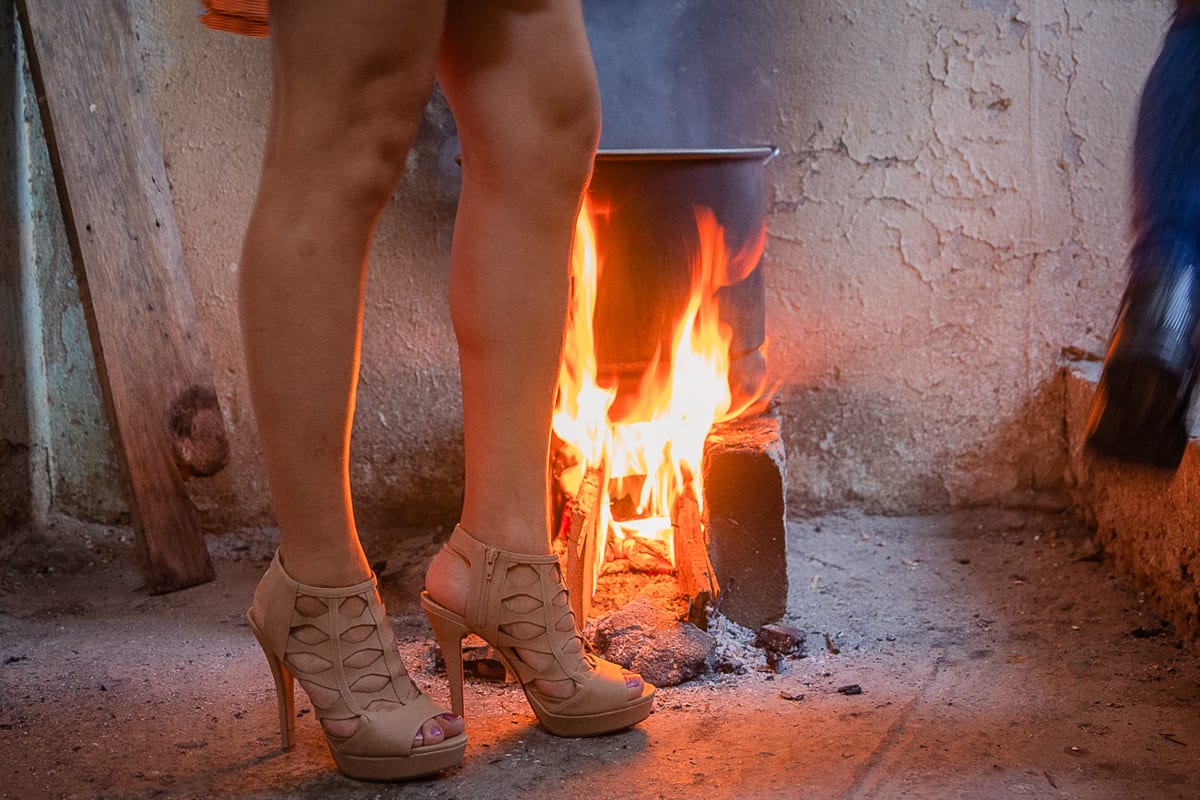
“We found out that they wanted to keep us there because they were getting money depending on how many people they sheltered,” Coreas explained. The shelter was getting paid twice for the women’s stay — once by the women themselves and once by funders who thought they were covering the women’s rent and food expenses. The longer the women stayed there, the more money the shelter received.
By the time Coreas learned what was going on, it was too late.
“The pandemic started, and we lost our chance of crossing the border,” Coreas said.
After that first shelter, Coreas and some of the women bounced between shelters. They went to a hotel funded by the United Nations’ migration agency as temporary housing for migrants and then to another government-run shelter. Their identities as transgender women made finding a more permanent home difficult.
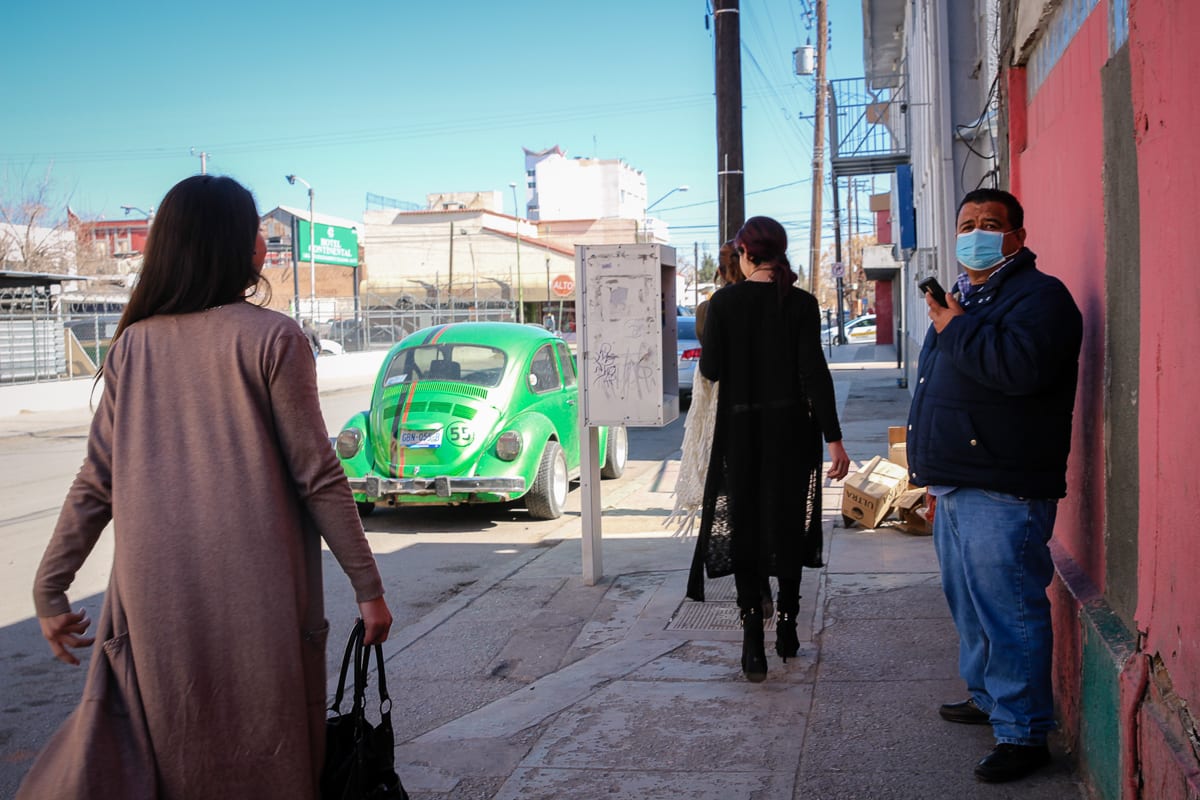
Last September, the managers of the bar where Coreas worked offered to let the women stay in an abandoned hotel. There was no water and no electricity, and pigeon droppings and dirt stained the interior.
The women got to work on making it livable. The government-run shelter Leona Vicario provided them with beds; other organizations provided them with food, clothing, sheets, and utensils; and the neighbors helped them install electricity so that they could have light. Eventually, they also managed to open the drinking water valve.
“Little by little we managed to make the shelter habitable,” said Coreas, who has become the de facto leader of the house. Casa de Colores was born.
Making Ends Meet
At first, Coreas was able to sustain the community thanks to the free housing and donated food. But in mid-November, a group of LGBTQ women came to the building from Central America asking for asylum.
The owners of the building told Coreas that she could house only eight people. She negotiated with them, and the owners allowed her to house more women if she rented the building at $500 USD per month. She has to renew the rental agreement every two months.
After Coreas welcomed that first group, word of the house spread among other transgender women in Ciudad Juárez and beyond who were seeking asylum. More women began to come to Casa de Colores seeking shelter. Today, there are around 33 women living in the building on a given day. It costs them about 8,000 Mexican pesos ($370 USD) a week to survive.
The Women of Casa de Colores
“With the donations from before, we managed. However, so many girls have arrived that now the food doesn’t last,” Coreas said.
To help pay for essentials, she and some of the other shelter residents work, although finding regular employment as a transgender woman in Ciudad Juárez is not easy.
Months ago, Coreas and another resident, Alexa Ponce, went job hunting at a local bar. Ponce was wearing a dress and makeup; Coreas presented as a man. Upon seeing them, the bar owners decided to hire Coreas but not Ponce.
Housing and employment discrimination based on a person’s sexual orientation or gender identity are illegal in Chihuahua, the state where the shelter is located, but the women at Casa de Colores say it is common.
“It’s very frustrating to be rejected for a job for the simple fact of being who you are, for dressing how you feel comfortable, for expressing yourself as you really are,” Ponce said.
The 25-year-old Ponce dreams of being an English teacher, a career she trained for back in her home country of El Salvador but could not pursue as a transgender woman. She hopes that when she is given asylum in the United States she will be able to safely work and live as her true self.
The Closest Thing to Family
On a recent Tuesday Ponce, Coreas and fellow Salvadoran Fernanda Levin gather the women of Casa de Colores on the building’s first floor for one of their twice-weekly meetings. These meetings are usually informative and routine. But not this time. The women have decorated the common area. A cake, featuring a sign that reads “Happy Birthday Gianna,” sits on a table and people are dressed up for the occasion. When the short celebration concludes, Coreas shifts the mood and emphasizes how crucial it is for them to stay attentive when they go out.
“We have to be careful who we talk to. We are foreign, and we are vulnerable. A lot of people may want to hurt us because they don’t accept us,” she says.
As the common area empties one woman approaches Coreas to complain about some internal household issues. Although they gather at friendly occasions, many of the women are struggling.
“The confinement, the climate, the lack of work have them all desperate,” said Coreas.
Coreas, Ponce and Levin have become mother figures to the group and have helped establish routines, rules and cleaning schedules. Coreas even worked with the Mexican nonprofit CEDIMAC to help the women access mental health services, like group therapy. They have to take care of each other, Coreas said, because no one else will.
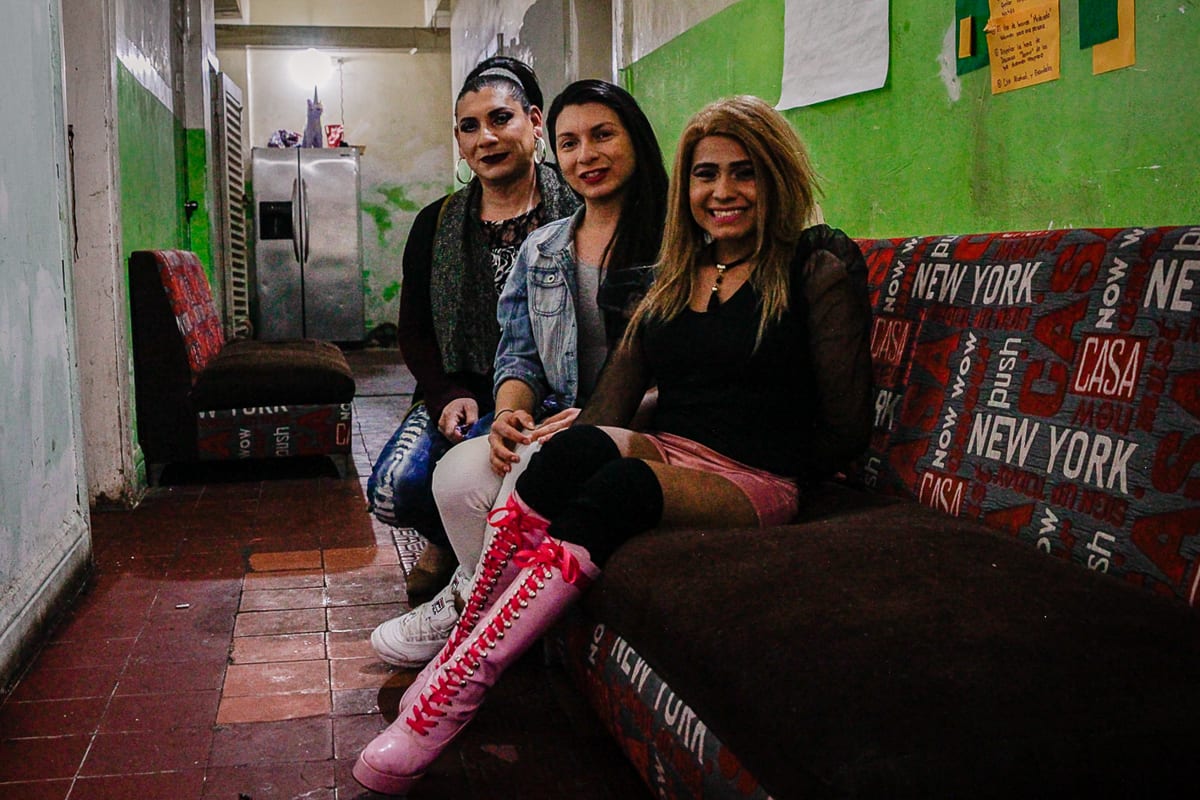
“This house is the closest I have to a family nowadays. We are migrants, we are Salvadorans, and we have the same objective: to be able to help our families,” Levin said.
The 27-year-old fled El Salvador in August 2020 fearing for her and her family’s safety. Levin began presenting as a woman when she was 19 years old and became accustomed to harassment and humiliation. But after playing a Mexican actress in a local bar show, Levin reached a breaking point. That night, as she and her sister walked home, a car cornered them, and the driver and passengers yelled insults and threw garbage at them.
“We were terribly scared,” Levin said. “Maybe one gets used to being mistreated from suffering so much, but seeing my sister suffer the consequences was unbearable for me. My parents also started receiving hate messages. I could not accept that my family suffered so much because of me.”
Levin and the rest of the women at Casa de Colores hope to find a safe home in the United States. They have been working with lawyers from the New Mexico-based Santa Fe Dreamers Project to prepare the paperwork for their asylum cases. The project tries to work with immigrants like the Casa de Colores residents who have yet to cross the border, where U.S. immigration authorities will detain them.
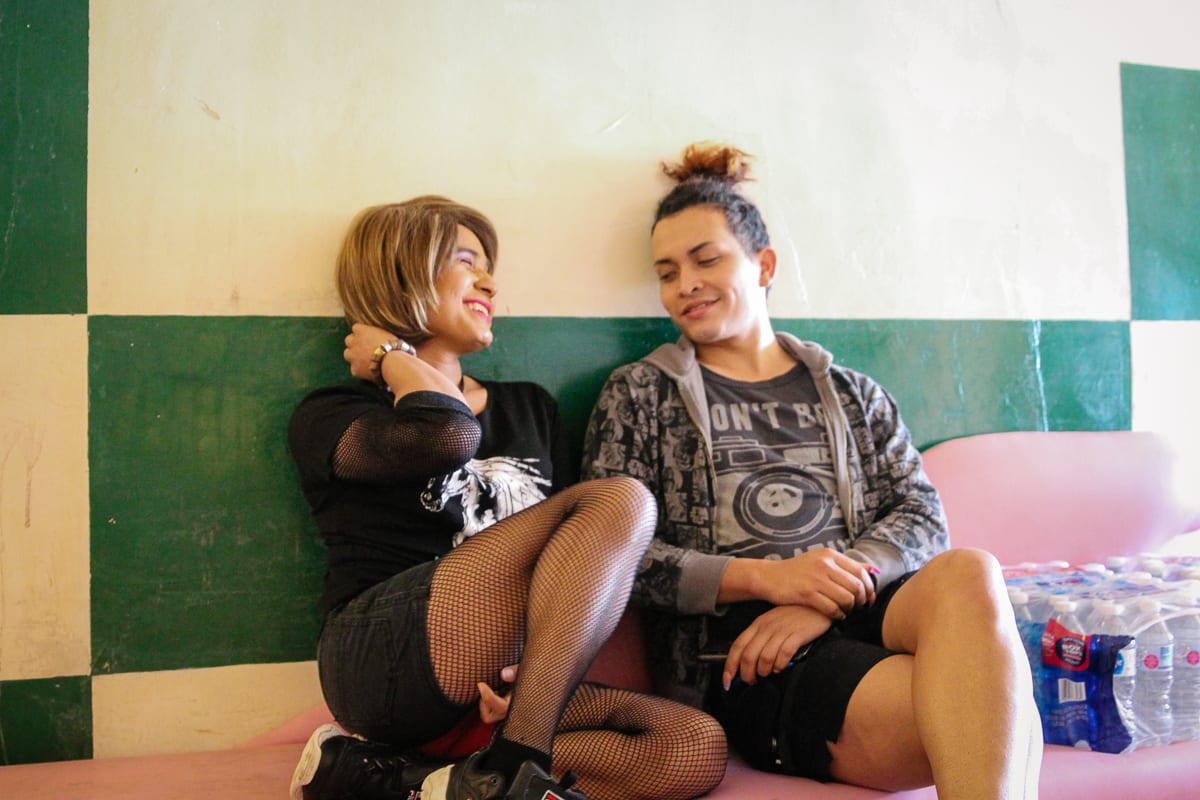
The hope, said Santa Fe Dreamers Project attorney Héctor Ruiz, is that by getting ahead of the paperwork, the team can minimize the time the women spend in immigrant detention centers. The project is also teaching the women about their rights as immigrants in the United States, helping them practice for their Credible Fear interview as part of the asylum process and supporting them in finding sponsors for when they cross the border.
Ruiz is hopeful that the new Biden administration will help asylum seekers like the women at Casa de Colores.
“I do think they have a good shot on winning their case as long as they have the proper representation,” Ruiz said. “[The Biden administration] has renewed their commitment to the LGBTQ community in terms of asylum seekers. We believe we have a chance for vulnerable communities such as Casa de Colores to be able to get asylum, from what we have read and heard.”
A Chance to Be Oneself
Until they are able to enter the United States, Levin, Coreas and the other women at Casa de Colores are trying to make their home as comfortable as possible. After an eviction threat in January, Coreas started paying more rent to smooth things over. She hopes she won’t have to find another home for the women.
“The most stressful part is not knowing where I am going to accommodate more than 30 girls. Where are we going to go?” Coreas said. “We are in limbo without knowing what is going to happen to us. There is no certainty, and it is difficult for us to plan for the future.”
Coreas thinks about the future a lot. She worries about what will happen if she is not allowed to enter the United States, but also how her son in Minnesota will greet her if she is granted asylum.
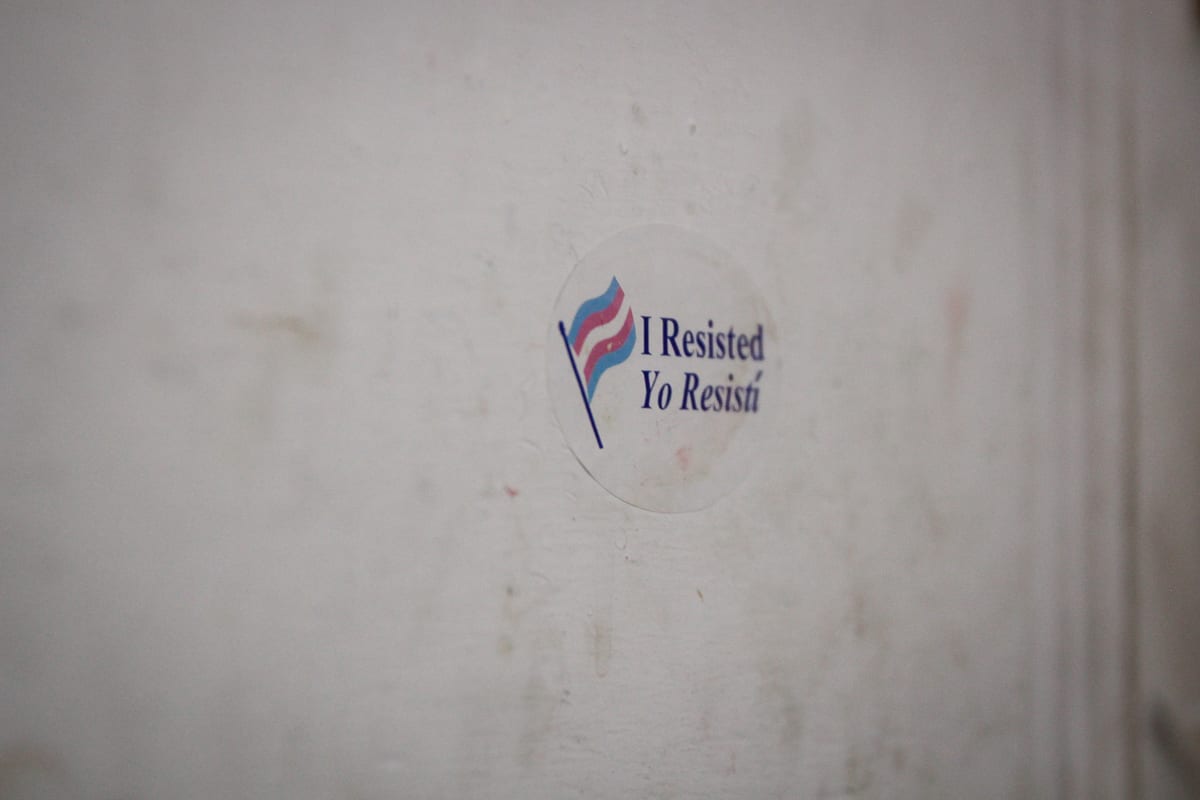
“He does not know that I am a woman. I don’t know if he is going to accept me or not, and that is an internal struggle that I have,” Coreas said.
In mid-February, Coreas learned from the organizations that are providing legal assistance to the group that, being part of a vulnerable community, they would be allowed to enter the United States after the MPP program participants are allowed into the country.
Coreas shouted with joy. For the first time in a long time, she might be able to embrace her son.
“We are so happy,” Coreas said. “We are finally able to hope and breathe a sigh of relief.”
Casa de Colores accepts donations via Venmo @casa-de-colores.

